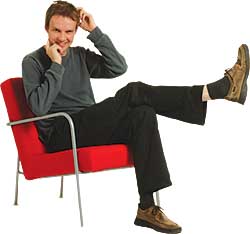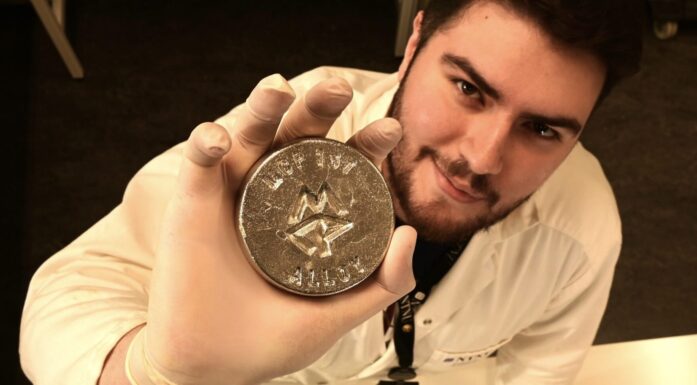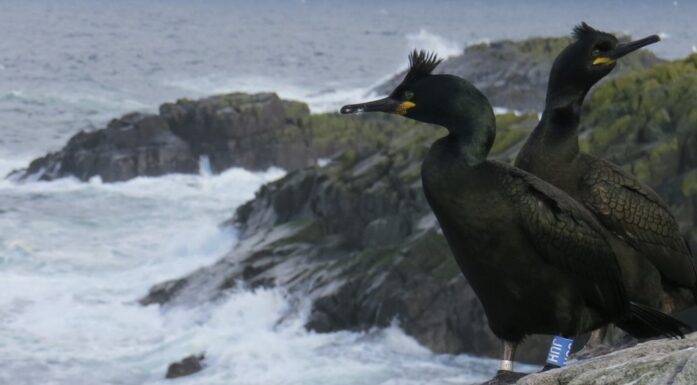Scientific dreamers

EMIL RØYRVIK (32) qualified as a social anthropologist at NTNU and is now a researcher at SINTEF Technology and Society where he works with learning, knowledge and culture in the working life.
Foto: Roar Øhlander
Many of us live in the delusion that the apparently respectable success stories of our western world are due to the fact that science, wielding the weapon of common sense, has forever displaced barbarianism, superstition and ridiculousness.Many would even claim, in controlled attacks of self-aggrandizing petty importance, that it is common sense that distinguishes us from animals. But common-sense science is not concerned with truth, and it creates nothing. On the contrary, the science that has created things of lasting value is a happy science, a fantastic science, a different science, a science that is completely lacking in “common sense”.
A quick glance at the history of science should be sufficient to confirm our claim. The greatest scientists were dreamers and visionaries. Take Nikola Tesla, for example, tamer and master of light and discoverer of alternating current, the man who revolutionised industry and modern society,who invented the use of wireless energy transmission and was the real inventor of radio and robots. Tesla described a huge number of fantastic inventions, most of which were written off as madness; among them was a way of capturing solar power by means of an antenna and a method of controlling the weather by means of electrical energy. Tesla wished to make war impossible by (his) inventions. All this was at the turn of the previous century.
Of the other scientific dreamers who we celebrate today, we do not even need to mention Leonardo da Vinci or, for that matter, Copernicus, who not only put a whole cosmology to the torch but was a painter and also translated Greek poetry into Latin. The Theory of Relativity came to Einstein while he nodded off in the sun in Tuscany. And it was the knowledge-hungry joker and Nobel Prize-winner Richard Feynman who goaded a whole world into developing nanotechnology in 1959 with the two simple questions:
“Why can’t we write the Encyclopedia Britannica on the head of a pin?”, and “What about collecting all the books in the world in a grain of dust?” “Everything you can imagine is real”, said Pablo Picasso.
But we have no need to cross the ocean in search of visionary scientists. Kristian Birkeland was probably Norway’s most original and independent scientific mind, the man we all know from the 200-kroner banknote, nominated seven times for the Nobel Prize, and with his name linked to the epoch-making discovery of artificial fertiliser and the founding of Norsk Hydro. Admittedly, many people are impressed that he also invented margarine, caviar and the mechanical hearing aid, but that he believed as early as 1906 that we would be able to release enormous quantities of energy by splitting the atom, or that he wanted to treat cancer by irradiation therapy, no, such ideas were nothing but madness. No-one would finance the necessary research. Fifty years later, it turned out that Birkeland had been right. The USA’s “Star Wars” programme, for example,was based on Birkeland’s ideas. He also solved the mystery of the aurora borealis, the Northern Lights, as was confirmed much later by modern satellites.
Would the Research Council of Norway have financed Birkeland? Would Hydro or Statoil? The man took such a nonchalant view of the financial aspects of his projects that research policy administrators would have refused to read his application forms. Through the apostles of mediocrity, as the clerks and the managers parade-march through the world of academe, the rules that define good science and research have been transformed. Enthusiasts and researchers who swim against the current, people who think differently, fabulists and visionaries, those who have always saved us through their originality and their dreams – all have to dig themselves deeper and deeper into the ground in order to be able to think. But out-of-the-box thinking will prevail in the end.





